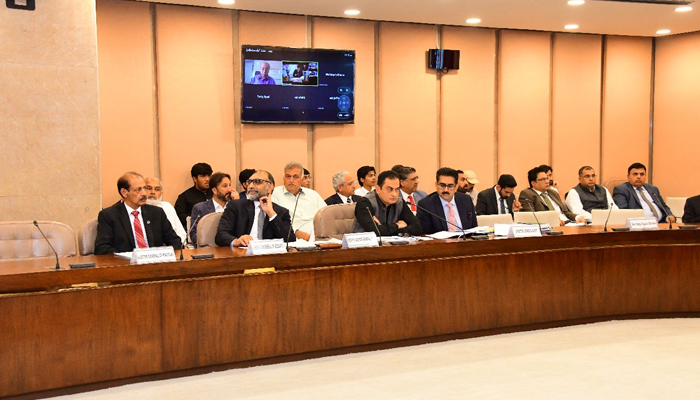PAC directs audit of $3bn SBP loans given during PTI's tenure
During PTI's government, several industries took loans under refinancing scheme at 5% interest rate
July 06, 2023

- $3 billion soft loans extended during COVID-19 pandemic.
- Khan directs SPB to share list of borrowers within three days.
- SBP suggests in-camera briefing; list not to be made public.
ISLAMABAD: The Public Accounts Committee (PAC) has directed a forensic audit of soft loans amounting to $3 billion extended to various companies and individuals during the tenure of the Pakistan Tehreek-e-Insaf (PTI), The News reported Thursday.
Governor State Bank of Pakistan Jameel Ahmed agreed to share the list of borrowers in an in-camera meeting during the committee meeting.
The soft loans of $3 billion were extended during the COVID-19 pandemic.
Chairman Noor Alam Khan presided over the meeting, which the finance secretary and State Bank governor also attended.
Moreover, the committee comprised representatives of the Ministry of Defence, the Ministry of Commerce and the Auditor General’s office to investigate the matter.
It was disclosed that during the PTI government’s tenure, textile, cement, tire and auto industries took $3 billion in loans under the refinancing scheme at a 5% interest rate.
Khan directed the SBP to share the list of borrowers with the committee in an in-camera meeting within three days.
He said on April 19, the State Bank of Pakistan had been asked under Article 66 of the Constitution to furnish the record of loans given to 620 people, but it was not given.
The PAC chairman inquired if the loan extended at 5% had benefited the economy.
PAC Member Barjis Tahir said the names of 620 beneficiaries should be given to the committee.
The finance secretary said it was a refinance scheme that was the State Bank’s mandate, adding the scheme had been implemented through the commercial banks and this requisite information was between the bank and client.
He told the committee that the scheme was launched in March 2020 after the Corona pandemic and was for one year first, having no foreign currency exchange component.
The scheme was for the industrial sector and import of machinery and it was revised to 5%.
“More than 85% of lending is from private banks. Of this, 42% of borrowers are from the textile sector,” he told the committee.
“We are worried because most of the companies do not return loans and open companies with new names,” said Khan.
Furthermore, Ahmed said the State Bank had the list of borrowers; however, loan details were confidential between the banks and customers.
He told the committee that Rs394 billion had been disbursed so far under the scheme, making it clear that the loans had been disbursed in rupees.
He further told the committee that in this scheme, the government and State Bank did not do any risk sharing, and commercial banks lent to clients at their own risk.
He told the committee that when the scheme was launched, the interest rate was 9% and was later reduced to 7%.
“This scheme was used only for the purchase of machinery,” said the SBP governor.
Khan inquired whether the SBP or the government made the policy, and why the names of these companies could not be disclosed.
The State Bank governor replied that a refinance scheme could be given under the State Bank Act and if a scheme involved government risk sharing, then its approval was sought.
“We can give a briefing on the benefits of this scheme,” he said.
Khan said the representatives of commerce, planning and defence ministries should be included in the investigation team.
The committee ordered a forensic audit of a $3 billion dollar loan and directed that a representative of the defence ministry be included in the inquiry.
The SBP governor suggested that instead of making the list of borrowers public, it would be appropriate to hold an in-camera briefing.
The PAC chairman agreed to the proposal and agreed to hold an in-camera meeting.











